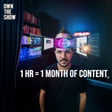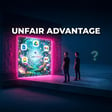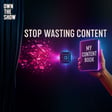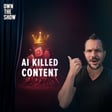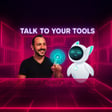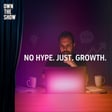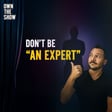
Integrating AI for Seamless Podcast Production
In this episode of the AI-Driven Marketer, Dan Sanchez sits down with Lee-Ann Scott to dive into the evolution of marketing tools, spotlighting the transition to user-friendly platforms like WordPress and Canva. They explore the burgeoning potential of AI in automating podcast production, from initial client interactions to post-production tasks, and discuss the role of custom GPTs in breaking down complex projects. Together, they address the productivity boosts these tools offer, the practical challenges of integrating LinkedIn with HighLevel, and the importance of scheduling deep thinking work. Tune in to grasp how AI can transform your marketing game and streamline your workflows.
Timestamps:
03:35 Automated LinkedIn outreach using conversational bots.
09:03 Networking and podcast appearances offer valuable insights.
11:37 AI clipping tools find almost perfect margins. Allows easy archiving, editing, and publishing.
13:32 Editing, production, upload, distribution - simplified with AI.
16:52 Successful show brings financial benefits, lacks video RSS.
22:00 Edited content still sounds wonky with ums.
25:57 Minimize software handoffs to reduce potential failures.
28:45 Customize super prompts for specific industry use.
32:39 AI will handle numerous steps in digital marketing.
33:32 Podcasting needs marketers to drive traffic.
38:23 Podcast production time reduced through automation.
![What’s Your Authority Score? [The 5-Factor Test] image](https://media.zencastr.com/cdn-cgi/image/width=112,quality=85/image-files/630c9f06819f8b3dba5fa460/cfbaccba-f587-45de-a41f-e2c99c15e2a5.png)
![The Audience Growth Engine [Full Framework] image](https://media.zencastr.com/cdn-cgi/image/width=112,quality=85/image-files/630c9f06819f8b3dba5fa460/46b84fd1-e856-4687-9aee-6b4a7e0bc7ff.png)
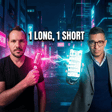

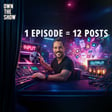
![The "Dream 100" Execution Plan [Google Sheet System] image](https://media.zencastr.com/cdn-cgi/image/width=112,quality=85/image-files/630c9f06819f8b3dba5fa460/fcd89374-76a4-4e58-a2e3-2bb7ddda4364.png)
